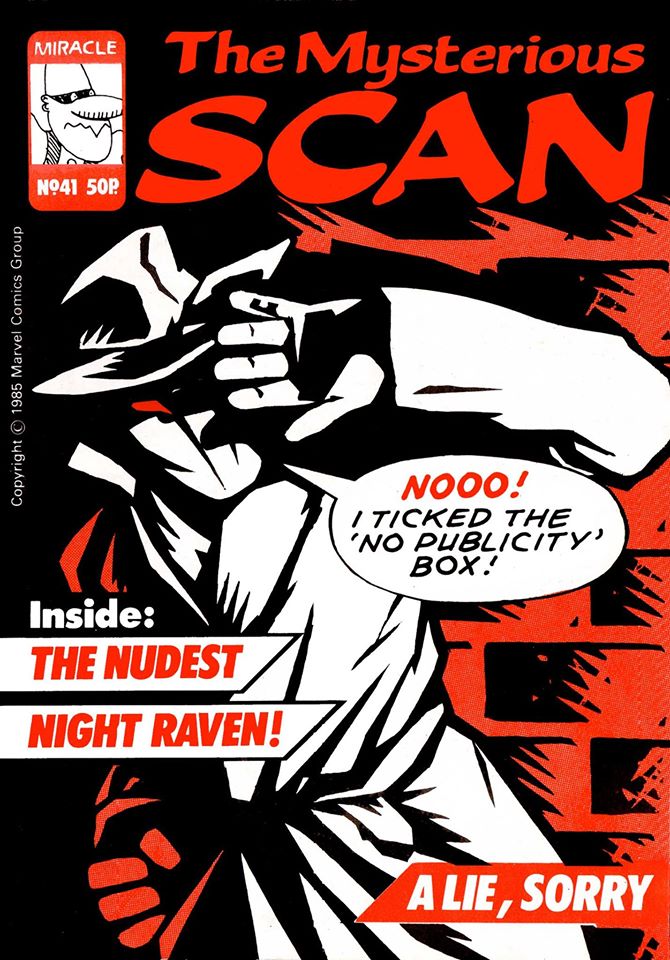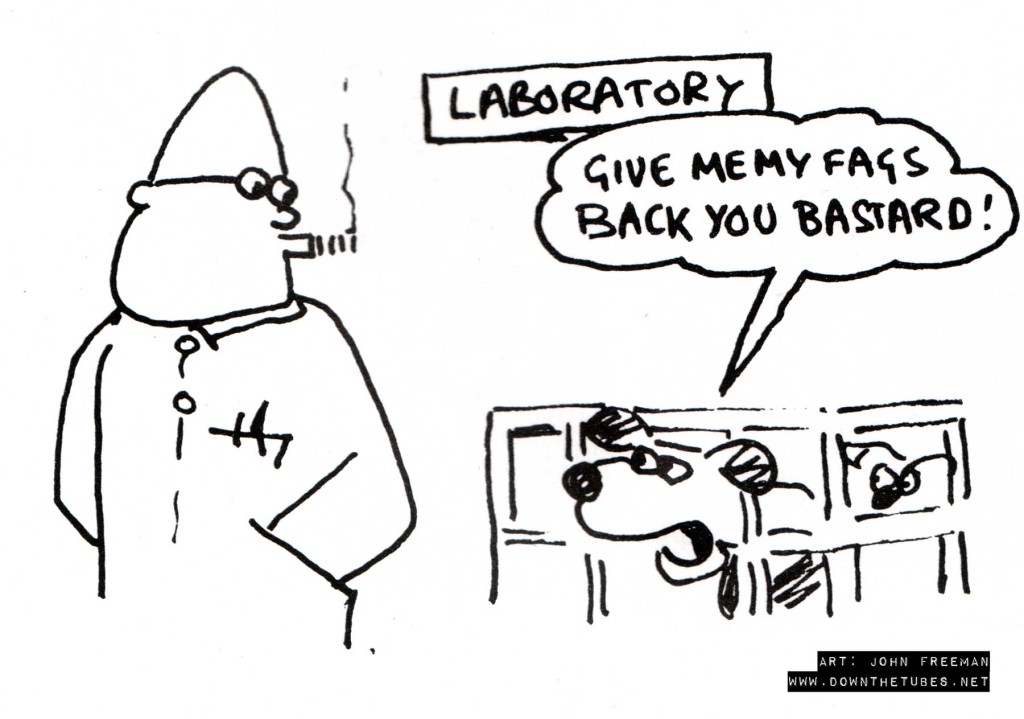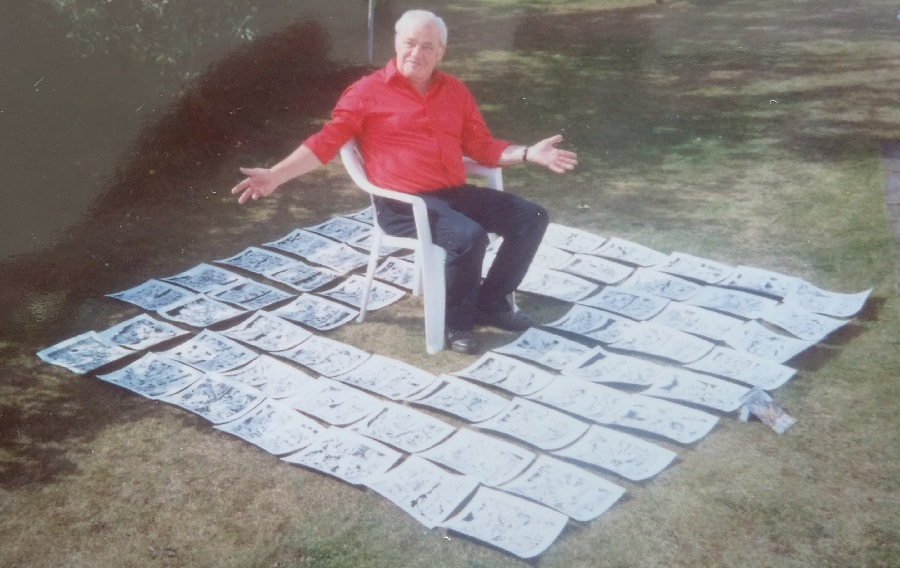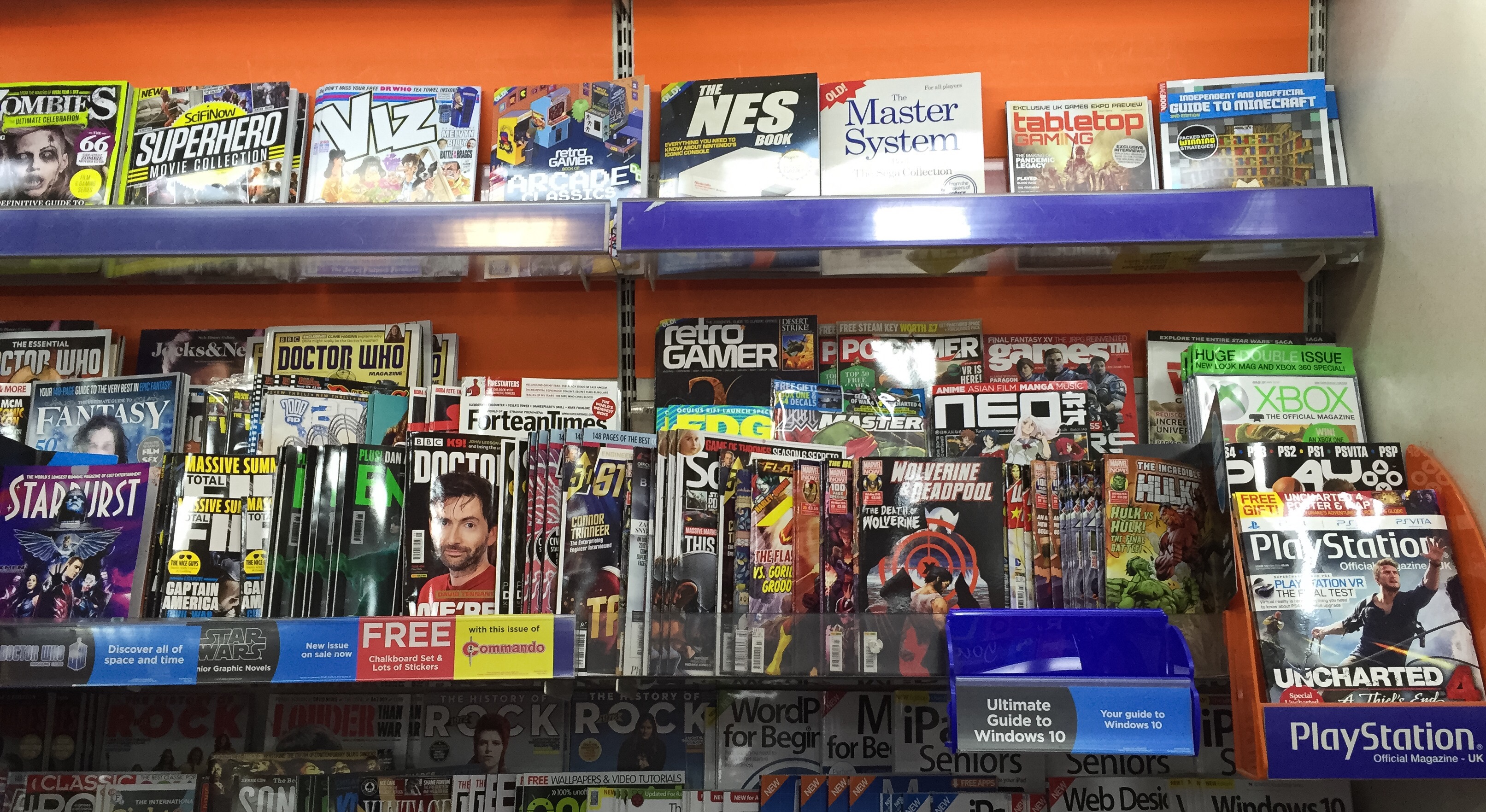
1980s British comic fanzine SCAN, edited by John Freeman. This cover was kindly created by Marvel UK staffers John Tomlinson and Richard Starkings, drawn by Ivan Allen (who drew the Night Raven illustrations for Mighty World of Marvel.
As many regular readers know, by day I’m a comic book editor as well as writer. I’ve been in the business a long time and seen it change down the years, with fewer and fewer openings for young creators seeking to make their way by getting paid to write and draw comics.
Occasionally, I get letters from either an artist or writer whose work, on reviewing samples when I get time, is actually pretty good… But they’ve been either knocked back or worse, had no reply at all from publishers they’ve pitched to.
What advice do I give them, aware as I am that they’re trying to break into a competitive market place where editors may receive up to 20 pitches in a day?
Well this was one recent reply to a good artist with a fine track record in other fields of his profession, exasperated by a lack of response to his samples…
Hi [Redacted]
Firstly, my apologies for the delayed reply. Usual busy schedule I’m afraid.
Thanks for sending over the samples – a lovely vignette in my humble opinion.
It’s very hard to break into the comics industry simply because there are so many people chasing so few openings these days. Not what you want to hear, I’m sure, but sadly the number of titles in the UK originating strip is a far cry from my early days as a comic creator.
Even then, though, it was hard. I got my job at Marvel UK in the late 1980s thanks to doing my own magazine, which gained me – and some of those who did strips for it – the attention of editors there. When I moved to London, I was offered freelance design work at the company and haven’t looked back.
These days, although I’m still an editor – albeit one with limited commissioning abilities at present – I still do my own stuff in the hope, through Internet presentation, that it will get attention and backing. All these projects are done on a wing and a prayer, and are dependent on finding free time outside working hours to do them (and it’s the same for my collaborators). A lot of creators now self publish, online or in print, knowing sales (if any) will be limited, but in the hope that they will be noticed.
I’d strongly recommend hooking up with s writer (unless you’re a writer artist) and simply get your work out there in some way. Think about using a platform like Tapastic or Patreon to publish a web comic, new services that offer the option of potential backing from readers. Get along to a comic convention and see what others are doing to get their own work “out there”.
We live in an age where everyone can have an opinion on your work if you’re prepared to put it on display. The trick is filtering out the nonsense and taking on board the good, constructive advice when you get it and ignoring the naysayers, especially when you do good work.
If you are pitching to publishers, be ruthless about what you send them. Make sure you send them samples featuring characters they publish. If you’re pitching to 2000AD, for example, they don’t want to see Spider-Man
[Note: 2000AD’s submission guidelines are here and they state to writers: if you’ve never had a script published in 2000AD, you should start by sending in ideas for one-off, four-page Future Shocks, i.e. not established characters]
Less is more. Send comic strip samples, not covers. Send pencils as well as final art. Be sure it’s your best work but don’t labour over it – if you keep tinkering, you will never send it!
Above all, be convinced of your own ability. Art and story are a matter of personal choice and taste, and, inevitably some may not like your choices. If your work is good, and you are enthusiastic, prepared to work at it and keep trying, I have seen many gain the reward of the platform it deserves.
It won’t (except in rare cases) happen overnight. But if you’re disheartened now, take some comfort from the fact that many other are at this point with far less to offer than the work you are already doing.
I wish you every success.
John Freeman
www.downthetubes.net
I hope the advice is of some use to aspiring creators. I know it’s disheartening to get zero response to your work.
And, one last thing…

If you’re despondent about your work, think on this – I seriously thought I could be a cartoonist at one time..
The founder of downthetubes, which he established in 1998. John works as a comics and magazine editor, writer, and on promotional work for the Lakes International Comic Art Festival. He is currently editor of Star Trek Explorer, published by Titan – his third tour of duty on the title originally titled Star Trek Magazine.
Working in British comics publishing since the 1980s, his credits include editor of titles such as Doctor Who Magazine, Babylon 5 Magazine, and more. He also edited the comics anthology STRIP Magazine and edited several audio comics for ROK Comics. He has also edited several comic collections, including volumes of “Charley’s War” and “Dan Dare”.
He’s the writer of “Pilgrim: Secrets and Lies” for B7 Comics; “Crucible”, a creator-owned project with 2000AD artist Smuzz; and “Death Duty” and “Skow Dogs” with Dave Hailwood.
Categories: Creating Comics, Featured News, Features
 Rebellion announces new Battle Action mini series – our guide to the returning strips
Rebellion announces new Battle Action mini series – our guide to the returning strips  Comic Creator Spotlight: The Art of Gordon Livingstone
Comic Creator Spotlight: The Art of Gordon Livingstone  The Rotten State of Newsagents – Is it any Wonder Publishers Are Pushing Digital?
The Rotten State of Newsagents – Is it any Wonder Publishers Are Pushing Digital?